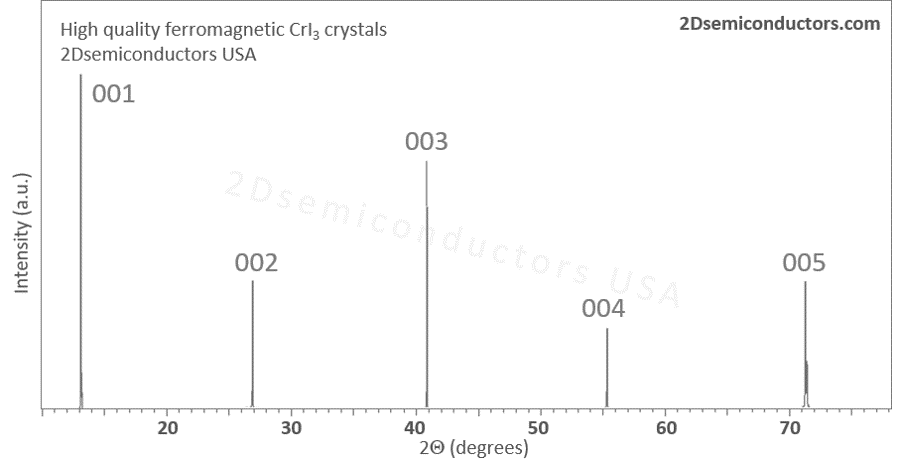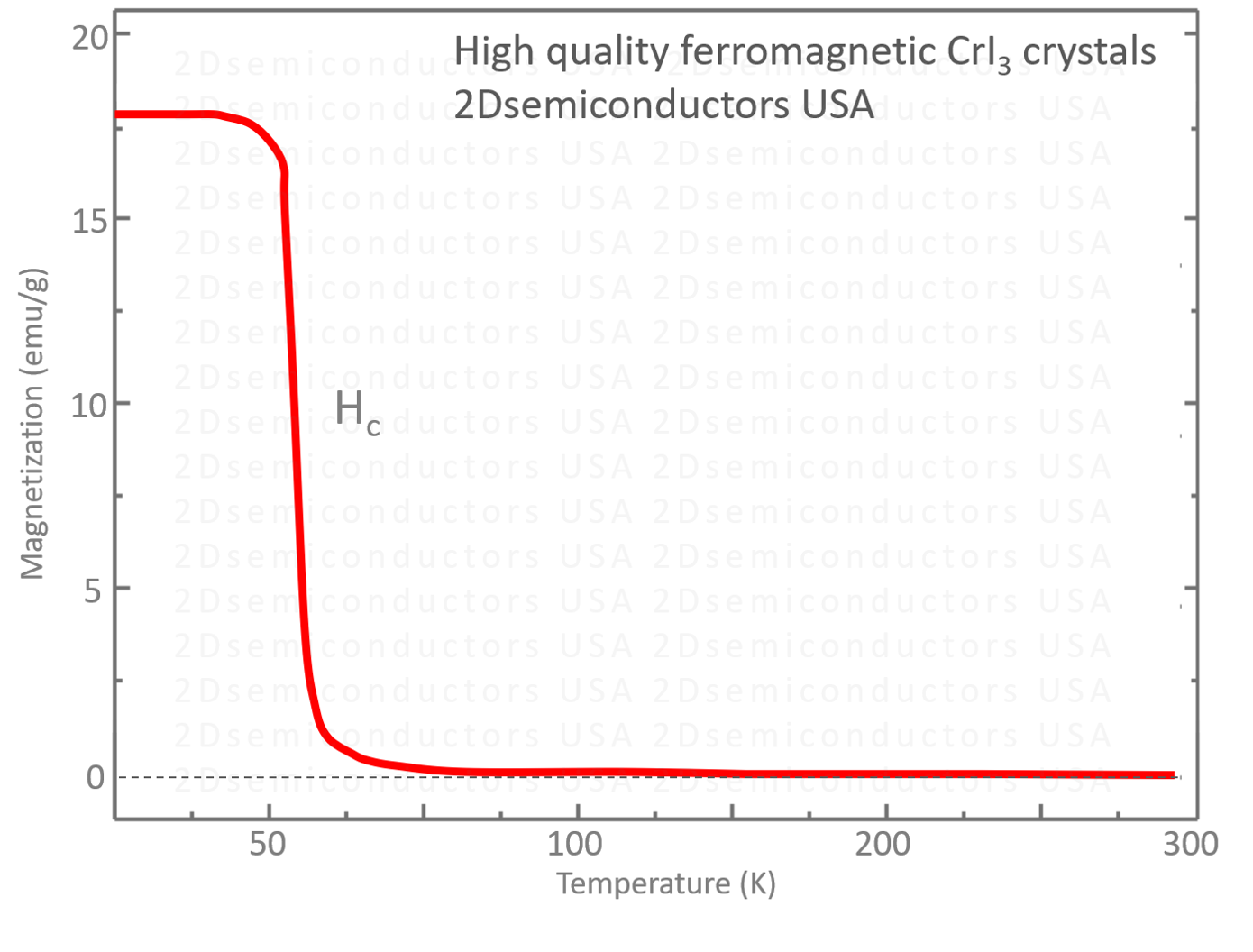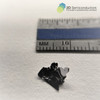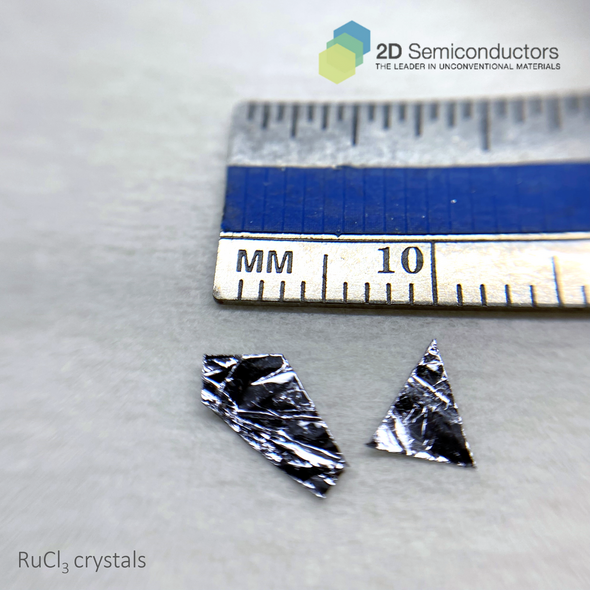Description
CrI3 vdw crystals were synthesized through high-quality self-flux technique without using any contaminating transport agents. Our CrI3 crystals come with guaranteed magnetic response and typical crystals measure around 0.5cm in size. Samples are packaged under N2 environment and pumped down to low pressures to ensure CrI3 come to your laboratory with excellent quality.
Properties of CrI3 crystals by 2Dsemiconductors
CrI3 (chromium triiodide) is a ferromagnetic semiconductor with Curie temperature (Tc) 61 K with significant magnetic anisotropy. Unlike other ferromagnetic vdW crystals the ferromagnetic order is also present down to monolayers (Tc of 45 K), and the magnetic behavior of CrI3 can be well described by the Ising model. Our CrI3 crystals are grown using chemical vapor transport technique at our facilities. Based on our experience, the amount of vacancy defects plan a vital role is their stability as well as FM response. All these products are handled using non-magnetic tweezers and in non-magnetic environment with tools that are free of magnetic impurities to ensure intrinsic magnetic properties can be confidently measured and probed.
| Material properties | Ferromagnetic semiconductor |
| Crystal structure | C2/m |
| Unit cell parameters | a=0.686 nm, b=1.186 nm, c=0.698 nm, β=108.7° |
| Band gap | ~4.5 eV (bulk) monolayer behavior unknown |
| Growth method | Chemical vapor transport (CVT) (Growth does not contain impurities) |
| Purity | >99.9995% confirmed |
XRD data collected from CrI3 crystals

Magnetization data collected using Magnetic Property Measurement System (MPMS Quantum Design) by 2Dsemiconductors

Additional Information
Elements: |
Cr,I |
Element: |
Chromium |
Element: |
Iodine |
Formula: |
CrI3 |
Material class: |
M(Ha)3 |
Material class: |
Trihalide |
Properties: |
Semiconductor |
Properties: |
Magnet |
Band gap range: |
VIS |
Growth method: |
CVT |
Doping: |
Undoped |











